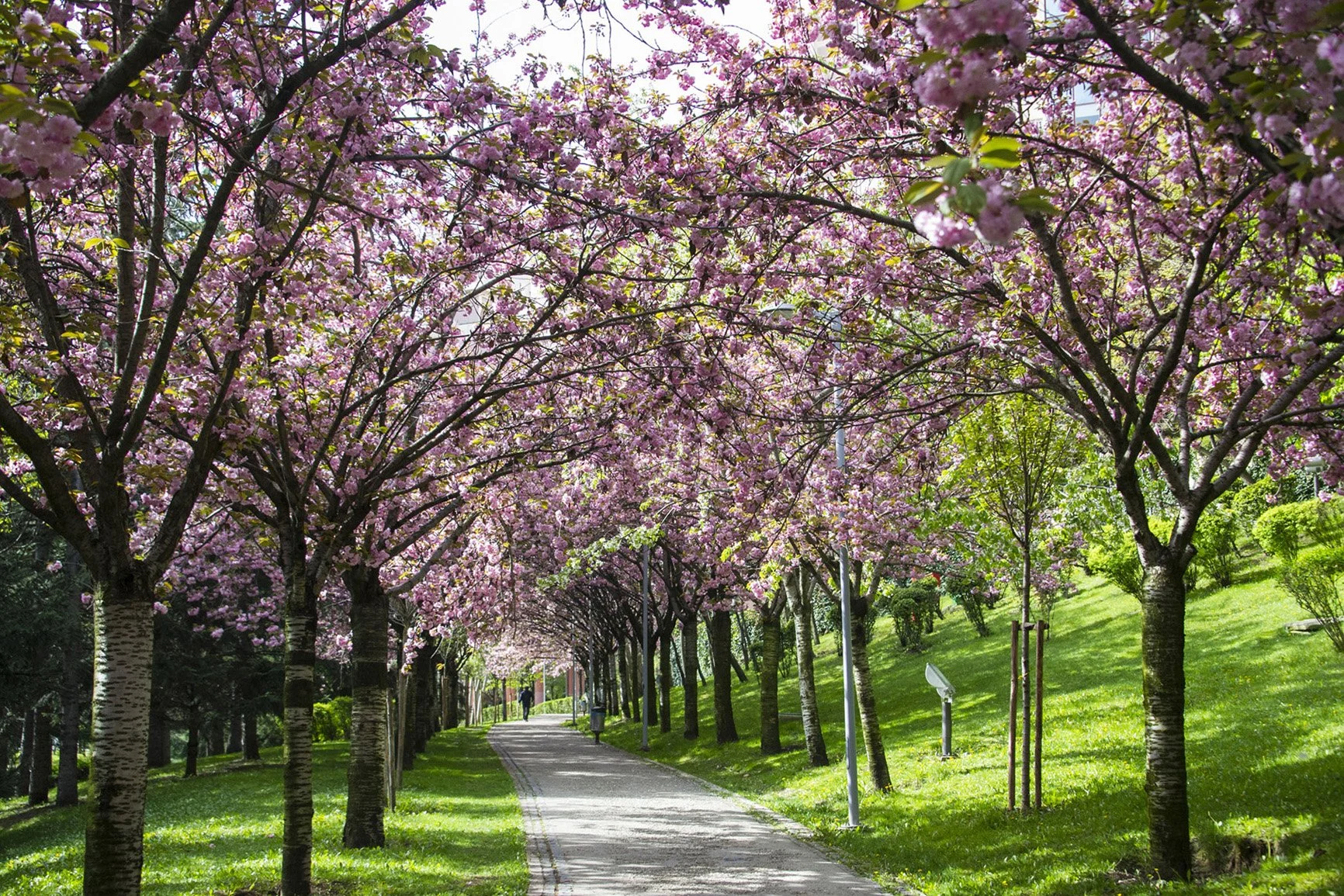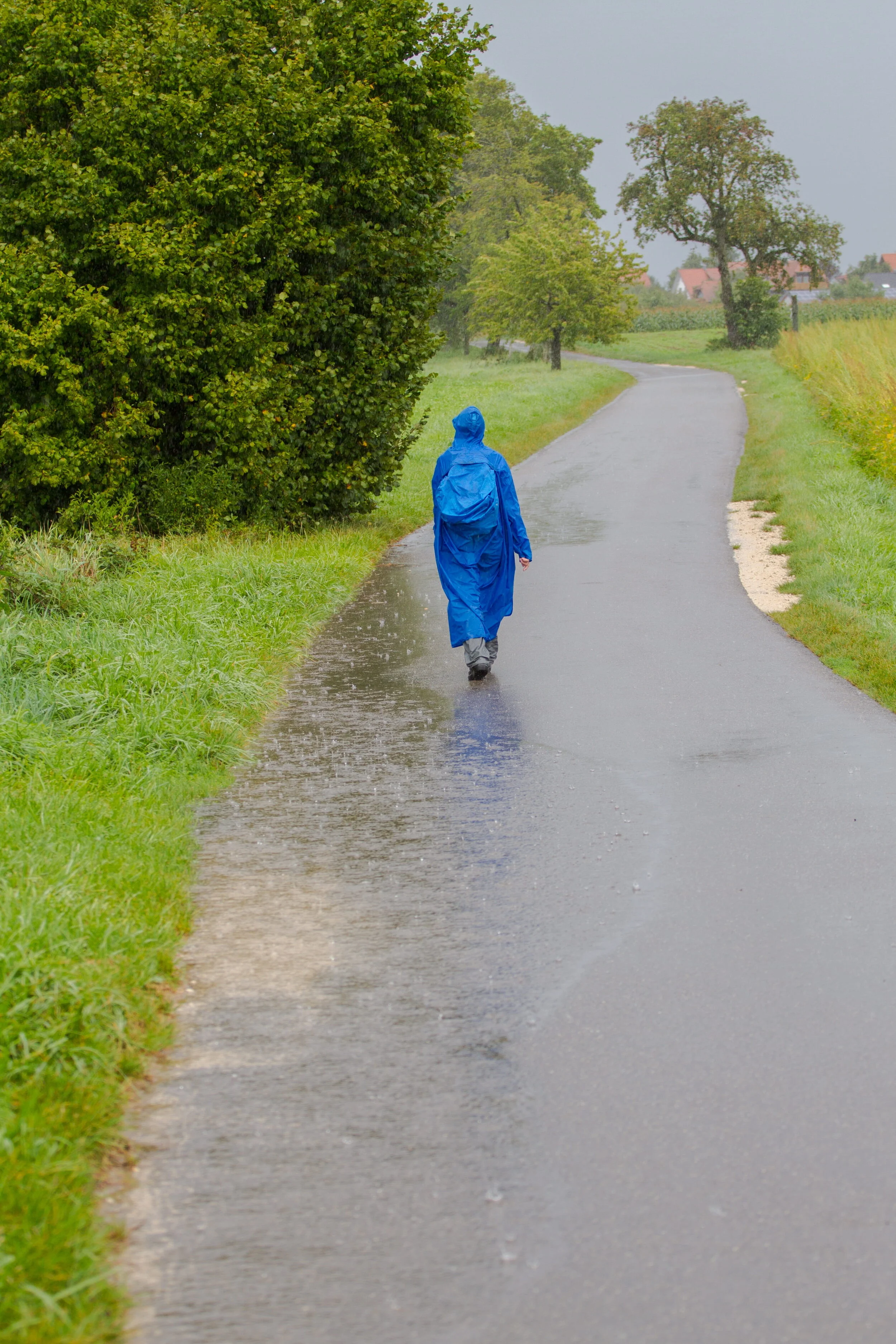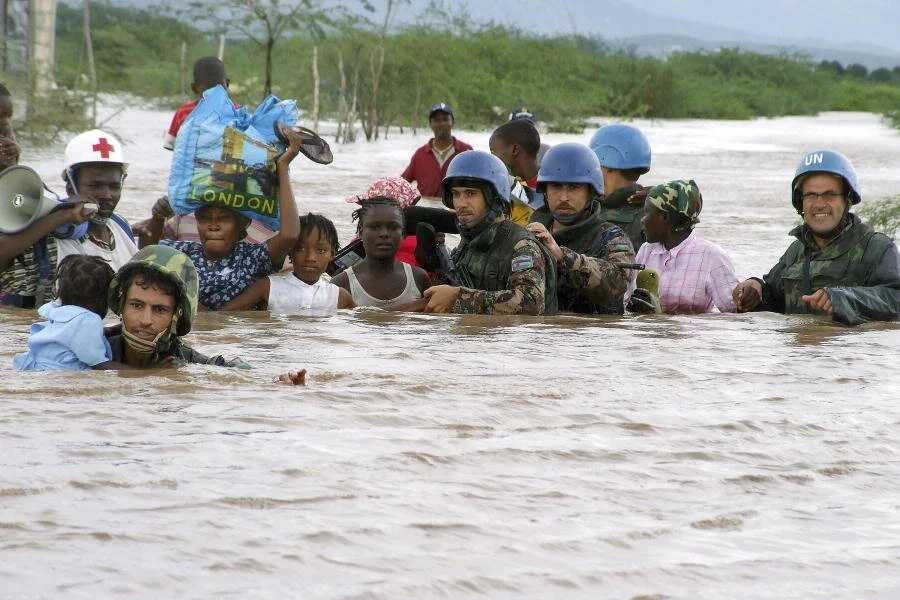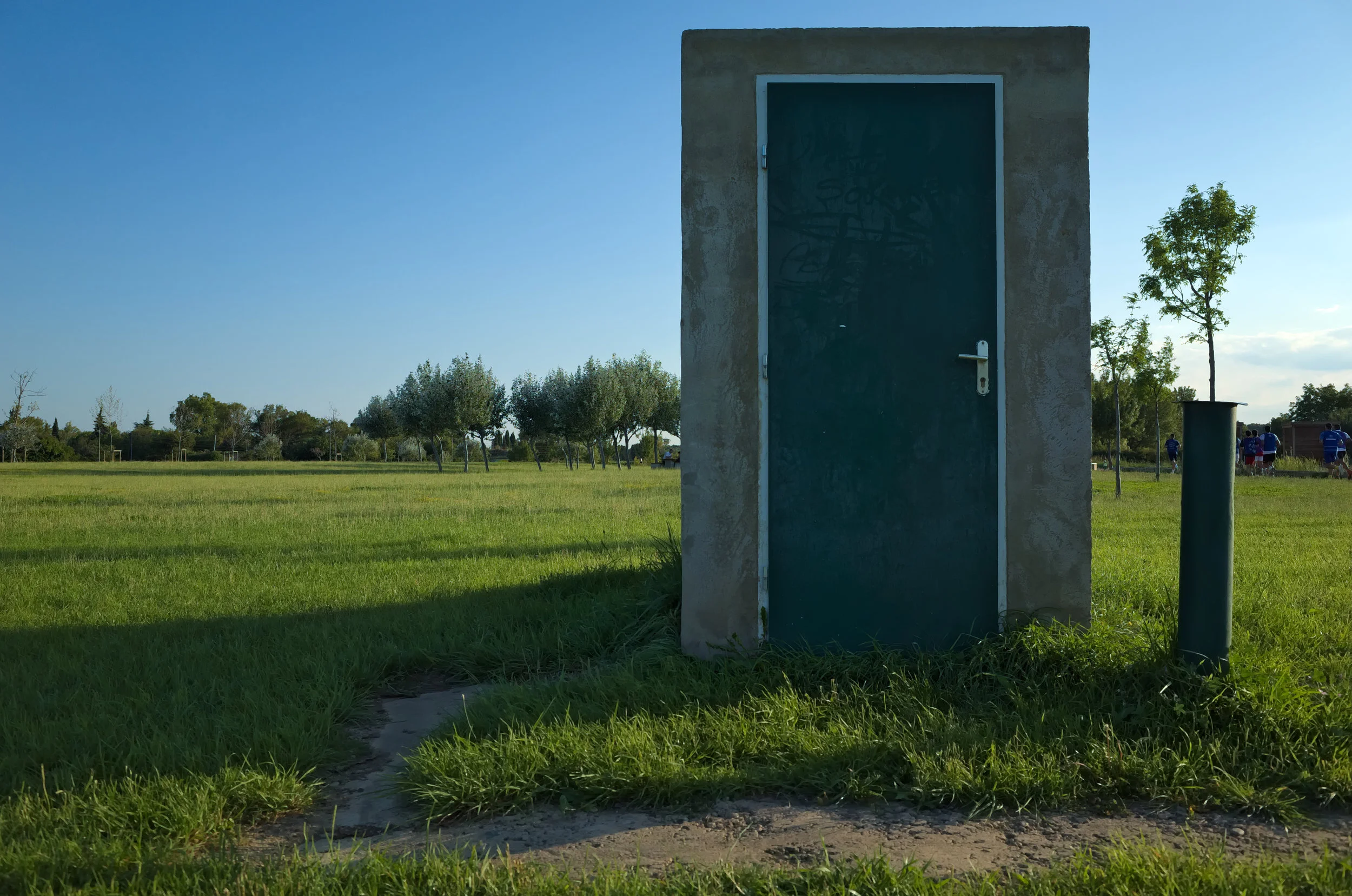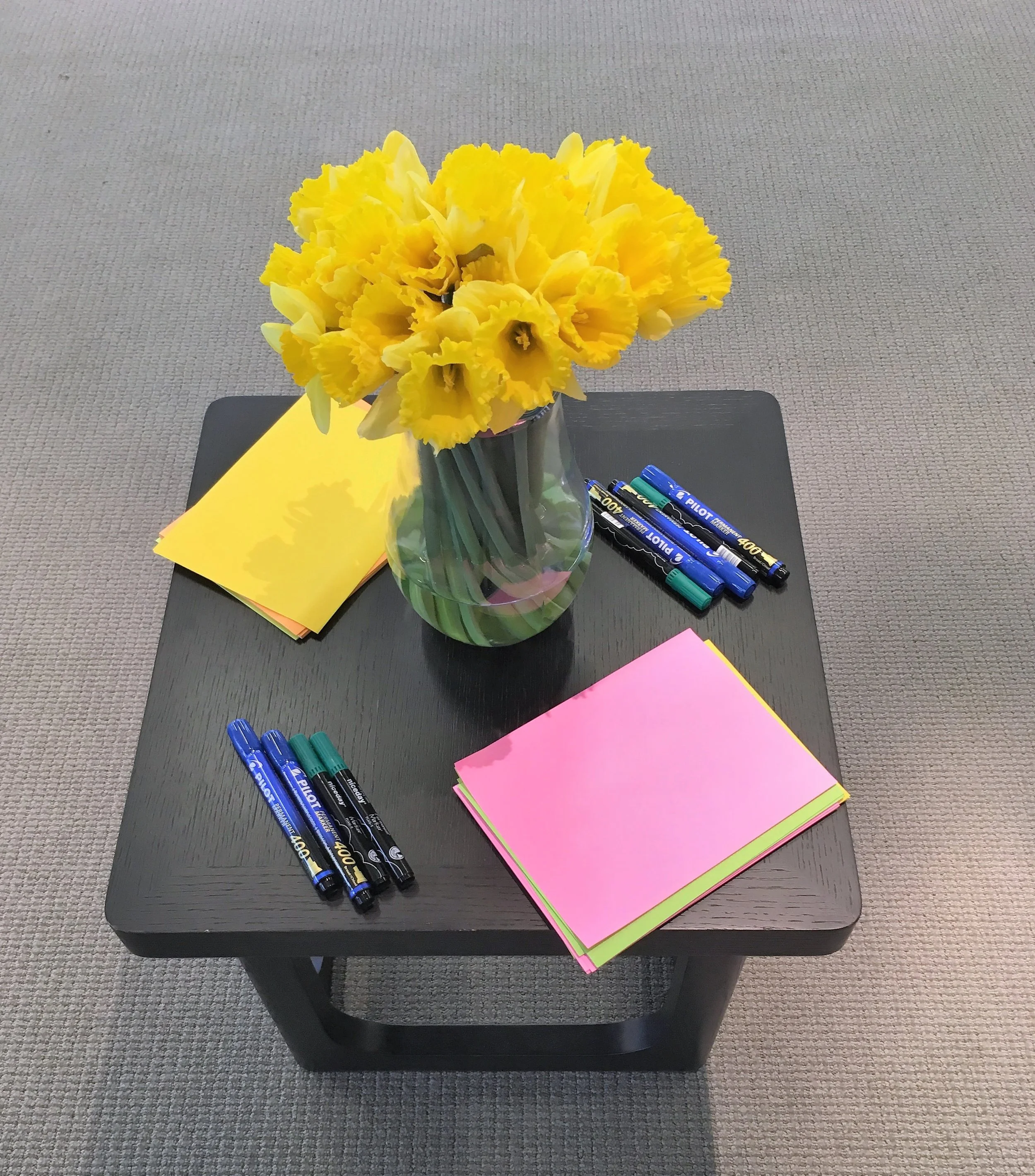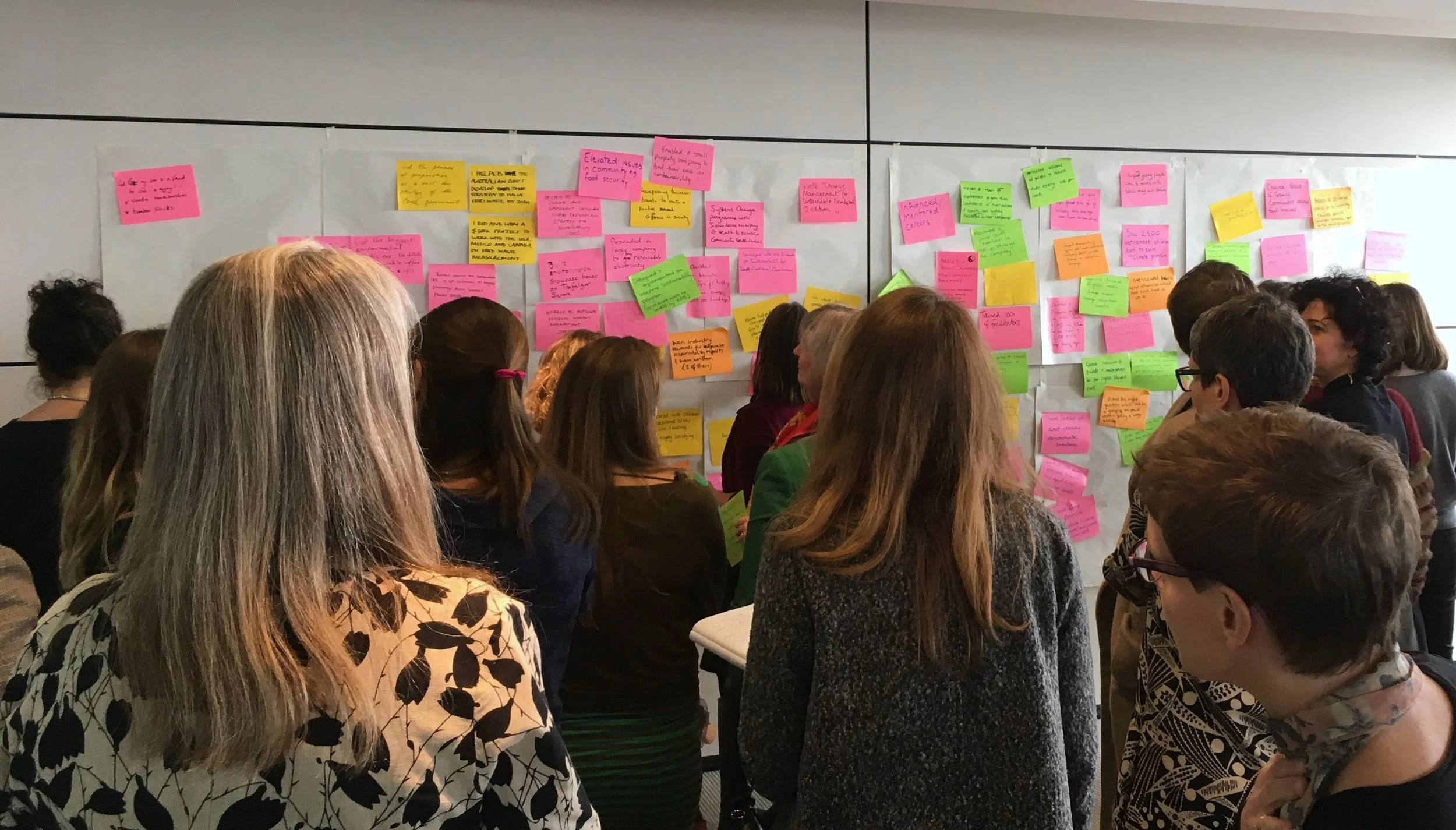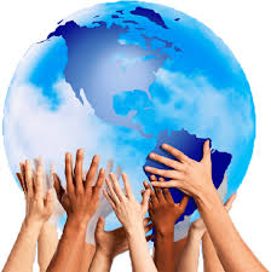Thank you so much to everyone who joined us at one of the She is Sustainable spring gatherings in March!
It was wonderful to be part of your conversations about guilt and joy, finding the right boundaries to protect our own energy for what we care about, and whether we should be 'nice' to people who still don't get it, or who are spilling over with new-found enthusiasm.
What shall we bring with us, into the new normal?
What might a sustainable post-pandemic recovery be like?
More priority given to care and caring? Collective action for individual good? Cities designed to enable us to be good neighbours? Or inequalities made worse by stark divisions between the people who can work from home and those who can't? She is Still (virtually) Sustainable brought together a brilliant panel to explore what the future of sustainability looks like, from our vantage point within a pandemic and a lockdown.
Disruptive tech and the climate
During Storm Dennis, eight people apparently had narrow escapes because their Teslas' automatic braking systems stopped them in time to avoid a falling tree. But what other benefits might disruptive technologies like autonomous vehicles, AI, or big data have in the climate and ecological emergency? I was lucky enough to chair an IEMA Fellows and Futures event and hear about disruptions from blockchain to bicycles.
Holding the space for climate conversations
How do you feel about the climate emergency? How do you feel about your personal contribution to emissions of greenhouse gases? What do you see in your future?
And if you’re a facilitator, or have some other role in helping other people have conversations about the climate, what do you do when strong emotions show up?
Creating a 'Thinking Environment'
Nancy Kline’s Time to Think was one of the first books I read about coaching, and it has had a profound effect on my work with groups and in one-to-one settings. Kline believes that “everything we do depends for its quality on the thinking we do first. Our thinking depends on the quality of our attention for each other”.
Here’s her guidance on how to create a holistic setting which enables people to do their best thinking.
There's a place for us... Choosing a venue
All About Change! Discussing pro-environment behaviour change with psychologists
Paying attention to the mood
When I first met with Brigid Finlayson and Carolina Karlstrom, to see whether we could work together to create the first She is Still Sustainable, we talked a lot about the kind of event we wanted to make it. And our conversation focused a lot on mood, atmosphere, emotional tone: we wanted it to be “warm, safe, friendly event which is refreshing, inspiring and supportive”.
Celebrate your achievements!
One of the lovely things that we did at She is Still Sustainable last month, was to build a wonderwall of our achievements. And wow! What a lot we have achieved.
Some were very personal – surviving divorce, arranging funerals, raising children....
Some had enormous reach – training 100s of facilitators, systems change programme with Sierra Leone Ministry of Health to improve community health, part of a team delivering a sustainable London 2012...
What difference do our differences make? Some thoughts on diversity in the sustainability profession
She is Still Sustainable was more workshop than a conference, but we did have two speaker panel sessions. Like other She is Sustainable events that came before ours, this included a presentation on some of the facts and figures showing the systemic disadvantages women experience in the workplace.
Final places remaining - book now! Still conversations for sustainability leaders
Where next for your sustainability strategy?
In these turbulent days, with right-wing populist movements rising and an unpredictable political context, you may be asking yourself how this should be reflected in your sustainability strategy.
Perhaps there are critical business and organisational issues which need addressing, regardless of political uncertainty.
Personal resilience hits a nerve
Every single place at this first still conversation has been snapped up - its theme of personal resilience has clearly touched a nerve. Coming along are people like the CEO of a sustainability NGO, the head of sustainability at a local authority, the group sustainability manager at a nationally known construction company and a director from a pioneering sustainable business think tank.
Still...... a new season of workshops for spring
Peer learning workshops - some emerging ideas
I'm excited about ideas for peer learning workshops that have been bubbling away in my head and are beginning to take shape.
Focused, coachy, peer learning
I want to bring together sustainability people of various kinds, to be able to talk with each other about their challenges and ideas in a more expansive and easeful way than a conference allows.
People really benefit from being able to think aloud in coaching conversations. I've seen the transformations that can happen when supportive challenge prompts a new way of looking at things.
We also get so much from comparing our own experiences with peers: finding the common threads in individual contexts, exploring ideas about ways forward.
I’d like to combine these things by making the peer learning available in smaller groups and smaller chunks, where the atmosphere is more like coaching.
What's the idea?
The idea is to run half-day workshops, with between 6 and 10 people at each event. The intention is that they are safe and supporting spaces, where people can talk freely. We'll meet in spaces that are relaxed, creative, private, energising and feel good to be in. (More comfortable than the stone steps in the picture.)
Each workshop would have a theme, to help focus the conversations and make sure people who come along have enough in common for those conversations to be highly productive.
I'd run a few, on different themes, and people can come to one, some or all of them. They don't have to come to them all, so the mix of people will be different for each workshop.
I'd charge fees, probably tiered pricing so that it's affordable for individuals and smaller not-for-profits, but commercial prices for bigger and for-profit organisations.
The content of each workshop will come from the participants, rather than me: my role is to facilitate the conversations, rather than to teach or train people.
Choices, dilemmas, testing
When I've tested this idea with a few people, many have said that the success of the workshops will depend on who else is there: people with experience, insight, credibility. People they feel able to trust, before they commit to booking. I think this is useful feedback.
On the other hand, I'm unsure about the best way to ensure this. Is it enough to include a description of "who these workshops are for" and leave it to people to decide for themselves? Or should I set up an application process of some kind: asking people who apply to include a short explanation of who they are, what their role and experience is, and why they want to come along.
If I set up an 'application' process, will that be off-putting to the naturally modest? Too cumbersome? Adding extra steps (apply, wait, get place confirmed, then pay...) feels risky: at each step, the pool of likely participants will get smaller. Will this make the workshops unviable? Who am I to choose, anyway?
Another option is to make the workshops 'by invitation' with people having the option of requesting an invitation for their friends, peers, colleagues - or even themselves. This is what I'm leaning towards at the moment, based on gut feel.
Will this increase people's confidence in the workshops - that not just anyone gets a place, their peers will provide quality reflections and be people worth meeting? Will it make those people who do get an invitation feel special, better about themselves?
And will I really turn down anyone who asks for an invitation? What will they feel?
I've set up a survey to gather views on this, as well as on the topics that will be most interesting to people. Please let me know here where's there a short survey. Discounts and prizes available!
How it feels to experiment
I'm not a natural entrepreneur. Some people love to experiment and learn from failure. Fail faster. Fail cheaper. Intellectually I'm committed to experimenting with these workshops: testing out ideas about formats, marketing, pricing, venues, topic focus vs emergence, length, the amount of 'taught' content vs 'created' content and so on.
Emotionally: not so much. I want to get everything right before I start (which is why it's taken me about six months to even get to this stage). I'm getting great support from lots of people, and boy do I need it. Even sitting here, I can feel the prickly, clammy, cold physical manifestations of the fear of failure.
I need to move through the fear and into the phase of actually running some test workshops. I know they'll be great. I can see the smiles, feel the warmth, visualise the kind of room we're meeting in and the I already have the design and process clear. I have a shelf of simple but beautiful props in my office. I am 100% confident about the events themselves, it's the communications and administration of the marketing that freaks me out.
Learning from the learning
So already I'm learning. About myself, about what people say they need, about how venues can be welcoming or off-putting, about how generous people are with their time and feedback.
She is Sustainable - sustaining the sustainers
Vertically, horizontally or circularly ambitious? Mothering or child-free, by choice or randomness? Urban or rural? Partnered for life or a free agent? Gay or straight or something else? Employed, entrepreneur or freelance?
Women who work in sustainability are all these things and more.
She is Sustainable was invented by five UK-based sustainability women (Becky Willis, Solitaire Townsend, Amy Mount, Hannah Hislop and Melissa Miners) who thought…
Do you #Dare?
The rather fabulous #DareConf is back in London next month. It's taking place at the Arcola Theatre, which is properly local to me and a wonderful eco-building (think solar panels, wood-fired heating, DC microgrids - eh?!) and community space in its own right.
So I was really happy that my friend and collaborator Jonathan Kahn invited me to do a session with him at #DareConf 2015. We'll be in conversation, exploring what a facilitator can do to help a group find shared goals by discovering underlying needs. Jonathan is really interested in power - how we wield it, how we give it up. His facilitation style owes a lot to non-violent communication, and I'm learning loads from talking with him about the challenges and options when working in groups.
(Regular readers will know that I'm really interested in anxiety and fear - how we display it and what we do to manage it.)
This is a return visit for me, because I had fun sharing ideas on finding consensus at #DareMini last year. The live webcast was a new experience and means that people who weren't there can still check out "Stop assuming, start asking questions: how to turn conflict into collaboration".
#DareConf grew out of Jonathan's background in the digital profession and styles itself "people skills for digital workers". Other contributors are firmly from this field: Rifa Thorpe-Tracey is a freelance digital project manager and organises SheSays Brighton. Laura Morgan is Head of Product at Comic Relief (no, I'm not sure either). And Holly Burns is a content strategist at Instagram, which I know is cool because my daughters (who don't do twitter or blogs) use it regularly. Although possibly not as cool as snapchat.
So as you can see, although I'll be hugely out of my depth digitally-speaking (plenty of opportunity for anxiety) I will at least be a local (plenty of opportunity for power) who knows which bus to catch and that people should pop round the corner to Dalston Eastern Curve Garden for a spot of bliss when we're done.
So if you're one of my neighbours - or even if you're not - do check out #DareConf. Early bird discount until 7th September.
DareMini
So DareConfMini was a bit amazing. What a day. Highlights:
- Follow your jealousy from Elizabeth McGuane
- Situational leadership for ordinary managers from Meri Williams
- The challenge of applying the great advice you give to clients, to your own work and practice from Rob Hinchcliffe
- Finding something to like about the people who wind you up the most from Chris Atherton
- Being brave enough to reveal your weaknesses from Tim Chilvers
- Jungian archetypes to help you make and stick to commitments from Gabriel Smy
- Radical challenges to management orthodoxy from Lee Bryant
- Meeting such interesting people at the after party
No doubt things will continue to churn and emerge for me as it all settles down, and I'll blog accordingly.
In the meantime, all the videos and slides can be watched here and there are some great graphic summaries here (from Francis Rowland) and here (from Elisabeth Irgens)
There are also longer posts than mine from Charlie Peverett at Neo Be Brave! Lessons from Dare and Banish the January blues – be brave and get talking from Emma Allen.
If you are inspired to go to DareConf in September, early bird with substantial discounts are available until 17th February.
Many thanks to the amazing Jonathan Kahn and Rhiannon Walton who are amazing event organisers - and it's not even their day job. They looked after speakers very well and I got to realise a childhood fantasy of dancing at Sadler's Wells. David Caines drew the pictures.
Location, location, location
Picture the scene: the room, which you haven't been able to check out before, has a low ceiling, tiny windows that somehow don't manage to let in much light, and is decorated in shades of brown and purple. There are uplighters on the walls, which have large strategically placed paintings screwed to them. And, of course, you have been told that under no circumstances can blu-tack be used on the rough-textured wallpaper.
